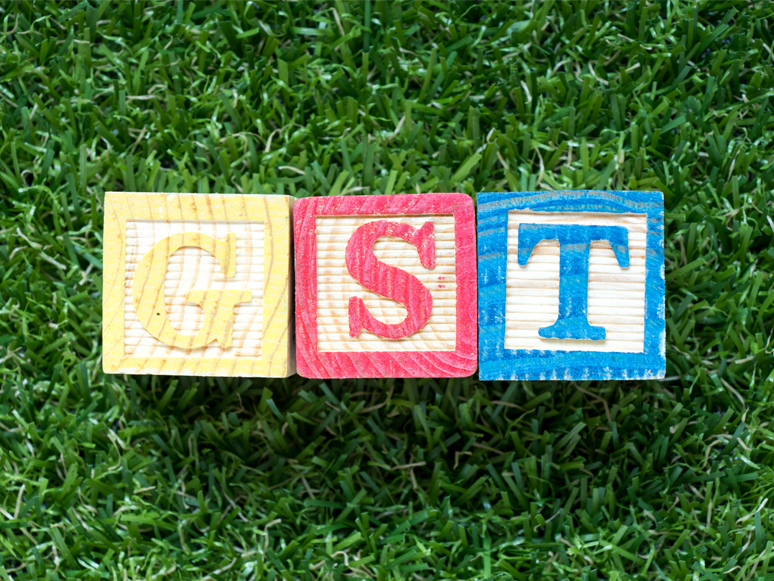logo


19th Dec, 2023

Legislation is currently before Federal Parliament that proposes to allow a deduction of $20,000 (up from
$1,000) for the instant asset write-off of depreciating assets acquired by small business entities in the period from 1 July 2023.These new rules were previously announced by the Federal Government in its May 2023 Federal Budget.
In the period from March 2020, as part of tax relief measures arising out of the COVID-19 pandemic, temporary full expensing of certain depreciation assets allowed many businesses to write off the entire cost of certain assets. The latest Bill proposes that from 1 July 2023, under simplified depreciation rules, depreciating assets costing less than $20,000 (excluding GST), may be immediately deducted, where the asset is first used or ready for use in the year ending 30 June 2024. Note that depreciating assets that are first used or installed ready for use for a taxable purpose on or after 1 July 2024 will be subject to the $1,000 threshold.
The $20,000 threshold will apply on a per-asset basis, so small businesses will be able to instantly write off multiple assets.
The instant asset write-off rules are available to entities that meet the definition of “small business entity” and where the entity carries on a business with an aggregate turnover of less than $10 million.
Connected entities to a small business taxpayer may also need to be considered to qualify for a deduction under the $20,000 instant asset write-off.
Depreciating assets that cost $20,000 or more are allocated to a small business entity general small business pool and can then be deducted at the rates of 15% in the year the asset is allocated to the pool and 30% in subsequent years.
If the balance of a small business entity’s general small business pool is less than $20,000 at the end of the income year ending 30 June 2024, the small business entity will be able to claim a deduction for the entire balance of the pool.
23rd Aug, 2023

The ATO has recently issued new GST guidance specifically relevant to crypto assets.
For GST purposes, the ATO considers that digital currency is a crypto asset utilising cryptography and distributed ledger technology to make secure transactions. The ATO has excluded loyalty points, in-game tokens, non-fungible tokens (NFTs), stablecoins, and initial coin offerings (ICOs) (if they fall under securities or derivatives) from this definition.
If receiving digital currency as payment for a taxable supply, the GST amount must be reported in Australian dollars on the business activity statement. Don’t forget: the tax invoice should include the GST payable in Australian dollars or provide sufficient information to calculate it accurately.
When using digital currency for purchases and claiming GST credits, be sure to report the GST amount in Australian dollars on your business activity statement. Remember, your tax invoice is key and must providing the necessary information.
Identifying the location of your trading partners can be difficult. Thankfully, the ATO accepts using the location of the digital currency exchange as a reliable indicator.
When you trade with Australian residents, it falls under the category of input-taxed financial supply. You don’t need to pay GST on these supplies.
When your trades extend beyond Australian borders or involve foreign digital currency exchanges, GST takes a back seat. Trading with non-residents qualifies as a GST-free supply, freeing you from GST obligations.
Be warned! While GST-free supplies spare you from paying GST, there’s a vital checkpoint to remember. If you supply digital currency, carry on an enterprise and exceed the GST annual turnover threshold (generally $75,000), you must register for GST.
22nd May, 2023

The ATO has warned content creators that they need to be aware of their income tax and GST obligations.
If you start making money from your online content, you will have income to declare. You will also need to consider whether you are in business. If you are, or you want to start your own business, it’s important you know what income you need to report, the deductions you can claim and what registrations you may need.
The income you receive could be cash, money for advertising or appearance fees, or goods like a gaming console, clothes or make-up.
It doesn’t matter whether the income comes from Australia or overseas. It is all taxable in Australia, as long as you are considered to be a tax resident of Australia.
Some of your supporters may purchase your merchandise or pay a subscription fee to access your content. They may send tips or gratuities (often called gifts). All of these are likely to be income and should be declared.
There are some important things to think about if you’re a content creator. Can you afford to accept the gifts? A new handbag or a free holiday may be enticing, but because it’s regarded as income, you’ll need to pay tax on it.
Consider how the income you earn will affect your other amounts payable. Sole trader income counts towards your total assessable income, so it could impact your study loans or Medicare calculation.
If you’re in business, and you have a GST turnover of $75,000 or more, you’ll need to register for GST. You will be liable to pay GST on your taxable supplies, even if you don’t pass it on to your supporters. However, you can claim input tax credits on what are called “creditable acquisitions”. You will be able to claim deductions for business- related expenses. You may also be eligible for various small business concessions.
19th Dec, 2022

As inflationary pressures start to bite, many businesses may be seeking rental deferrals or variations from their landlords to help them through this tough period. However, if your business has been lucky enough to receive a waiver, deferral or variation of rent you need to be aware that there may be income tax, GST and perhaps even CGT consequences, depending on a number of factors.
Where your business owes rent for a past occupancy period which is later waived or released by the landlord, including under bankruptcy or insolvency law, if you have already claimed a deduction for the rent on the business tax return, you’ll still be entitled to that deduction. However, the unpaid amount will be considered a debt forgiveness. This means the amount won’t need to be included in the assessable income of the business but may be offset against amounts that could otherwise be claimed as deductions.
For businesses that have already paid rent for a past occupancy period and claimed a deduction, any amounts waived or refunded will need to be included as assessable income.
Where your landlord waives rent related to a future period of occupancy, the business won’t be entitled to a deduction for the amount of rent that would have been paid. The only amount that can be claimed is the amount of rent that the business is required to pay.
For businesses that account for GST on an accruals basis, a waiver or variation of rent payable may lead to GST consequences. If the business has already claimed a GST credit for the rent which is waived or refunded, an increasing adjustment will need to be raised to pay back the credit that was claimed. This needs to be done in the BAS period when the business becomes aware of the waiver or receives a refund.
Deferrals, however, generally don’t need any GST adjustment. Businesses do need to be aware that if their landlord has changed the rental agreement, including timing or amount of scheduled payments, the GST credit that can be claimed will be based on the new agreement. In addition, if your business had claimed a GST credit for a deferred amount which the landlord later writes off as a bad debt, an increasing adjustment may be required.
Businesses that account for GST on a cash basis need not worry about adjustments, as they can only claim GST on the basis of actual rent paid as shown on a tax invoice.
Rental concessions may also have CGT consequences for your business. This may occur if, for example, your landlord has changed the rental agreement for payment or other consideration from the business or has created a new or additional agreement.
07th Oct, 2021

If the current prolonged lockdowns and economic conditions have prompted you to sell or close your business, it’s important to be aware of the need to cancel the related GST registration within a certain period, unless your business is in a specific industry or performs a specific role.
Cancelling a GST registration will also cancel other registrations such as fuel tax credits, luxury car tax and wine equalisation tax, even if the ABN is not cancelled. If you’re registered for PAYG, PAYG instalments or have FBT obligations, you will need to keep lodging business activity statements (BASs) even if you cancel your GST registration.
While you can usually cancel your GST registration from a date you choose (which should be the last day you want your previous business to be registered), you cannot cancel the registration retrospectively if you were still operating on a GST-registered basis after that date. Similarly, if you choose a cancellation date and then continue to operate on a GST-registered basis, you will not be able to cancel the registration.
When you cancel your business’s GST registration, you’ll need to lodge any outstanding BASs and complete a final GST activity statement which should include all sales, purchases and importations made in the final tax period. This should include the sale of the business, sale of any of business assets, adjustments for any assets held after cancellation, and/or any other adjustments. If you operate on a cash basis, all the sales and purchases that still need to be attributed from a previous tax period must be recorded.
If you’re cancelling a GST registration because the business has been restructured, sold or closed, the associated ABN must also be cancelled. If a company was not restructured, sold or closed, but simply no longer carries on a business, the GST registration must still be cancelled but there’s a choice to keep the ABN registration active.
01st Dec, 2020

The ATO has recently outlined its expectations for businesses post-COVID. Overall, it warns companies against using loopholes to obtain benefits from the various government stimulus packages and urged them to follow not only the letter of the law, but also the spirit of the law. Specifically, it reminds taxpayers that measures such as the expanded instant asset write-off and the loss carry-back scheme should not be used in artificial arrangements for businesses to obtain an advantage.
In a recent speech, ATO Second Commissioner of Client Engagement Jeremy Hirschhorn outlined the expectations for businesses, noting that while companies are largely compliant – with 92.5% voluntary compliance at lodgment and 96.3% after compliance activity – the ATO is seeking to increase the percentages to 96% and 98% respectively.
Corporate taxpayers can use ATO information to compare their performance against those of their peers in relation to income tax. The ATO also urges those taxpayers to use its GST analytics tool, which allows businesses to reconcile financial statements to business activity statements (BASs) and to follow its GST best practice governance guide.
Businesses have been entrusted with leading economic recovery via access to a range of government stimulus measures, and with this trust comes increased expectations around corporate behaviour – including tax. Ultimately, Mr Hirschhorn said, a tax system is about underpinning a country’s social contract by collecting the revenue that funds its program and services.